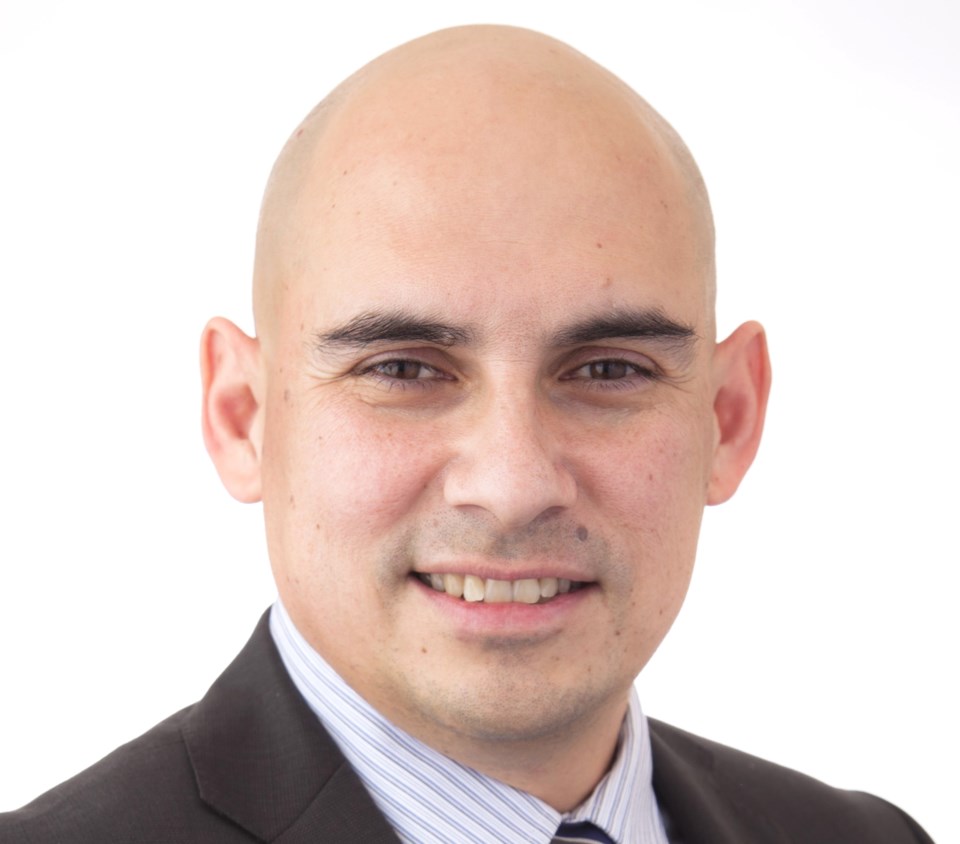ESTEVAN - Dr. David Peeace of King Street Chiropractic has been practising as a chiropractor for 28 years, with the last 21 coming in Estevan.
He moved to Estevan in the fall of 2003, after practising for seven years in Fort Qu'Appelle and roughly six months in Saskatoon.
But he's also Indigenous, and now he's doing what he can to bring other Aboriginal people into the profession.
Peeace recalls he came to Estevan because he was in solo practice in Fort Qu'Appelle and it was a lot of work. He spoke with Dr. Robert Kitchen and Dr. Hugh Armstrong in Estevan about coming here, and they were very accommodating and helpful, and made it easy to move to the Energy City.
"It's a place where we raised our children," said Peeace in an interview with the Mercury and SaskToday. "Both my wife and I are continuing to enjoy living here, and we're still working."
Being a chiropractor, it's a great way to help people alleviate their pain and get them back to the activities they really enjoy.
Originally from the Yellow Quill First Nations, Peeace was looking at a career in research in a neuro-physiological field, but he found he wanted to be with people more, and being stuck in a lab was appealing to him.
"I had a friend who was applying at the time, and it made the transition a little easier," said Peeace.
For the past year, Peeace has been part of the Indigenous Chiropractic Caucus (ICC), which is connected to the Canadian Chiropractic Association. He used to be part of the national organization's board and was its chairman at one time. He's the co-chair of the ICC.
"I've kind of had a reconnection with my background and my roots, so to speak, and finding that there's not a lot of chiropractors with Indigenous backgrounds," said Peeace. "I was giving a talk at the World Federation of Chiropractic, and one of the discussions at the time was on diversity, equity and inclusion, and I was doing it from the perspective of being an Indigenous chiropractor."
He didn't find a lot of resources or even practitioners. Peeace spoke with the leadership of the Canadian Chiropractic Association, and the ICC was in 2023.
They meet about three times a year, with anywhere from six to 10 members typically in attendance. He believes there are 10 or 11 chiropractors in Canada who are Indigenous.
Peeace pointed out that at the Canadian Memorial Chiropractic College in Toronto, there are 10 students, so the number of practising Indigenous chiropractors is expected to double in the next few years.
The caucus is trying to increase the number of practitioners in Canada and is encouraging university students to view the profession as a career. They're trying to develop mentoring relationships to help them practise. And they're trying to lobby the federal government to reinstate chiropractic care in Indigenous health.
According to Peeace, the Assembly of First Nations is expected to put forward a policy to actively encourage the government to include chiropractic services in its non-insured health benefits.
"In some of our research, over the past years, with issues with opioids and the crisis that's been there, a lot of people entered into that through musculoskeletal, back pain or neck pain, [etc.]."
Chiropractors tend to be a tight-knit profession, he said, because it's a different type of health care. In terms of the Indigenous side, those bonds are just getting formed.
"Up until a year or two ago, most people didn't know there were other practitioners from an Indigenous background and have felt isolated. One of the things that we're trying to build as well is that community and that connectedness."
The ICC is also emphasizing the importance of having chiropractors in rural settings.
If someone wants to be a chiropractor, Peeace suggests they learn about science and basic health subjects, whether it be in high school or university. He said it's good to seek out other chiropractors in general, to find somebody with a similar background to get experience, to check out clinics, to shadow and get more information.
"It's something you don't know anything about until you start to find out more about the topics," said Peeace.
Over the years, Peeace has visited different reserves and urban centres to promote and discuss the profession.
Peeace said he has never encountered any overt issues with patients because of his Indigenous roots. There could have been someone who decided it was a barrier to receive care, and they might have turned to someone else for that care.
"I think the people in this community have been very generous, very giving and very accepting of differences, so I would say Estevan is definitely a place where I have not experienced any ill wishes in my business."
Peeace believes it's important to be out there, to help encourage others and provide some positive reinforcement of what chiropractic care can do, and what the culture of Indigenous people has to offer.
With the National Day for Truth and Reconciliation on Sept. 30, Peeace said it's a good chance to bridge gaps between different cultures.






